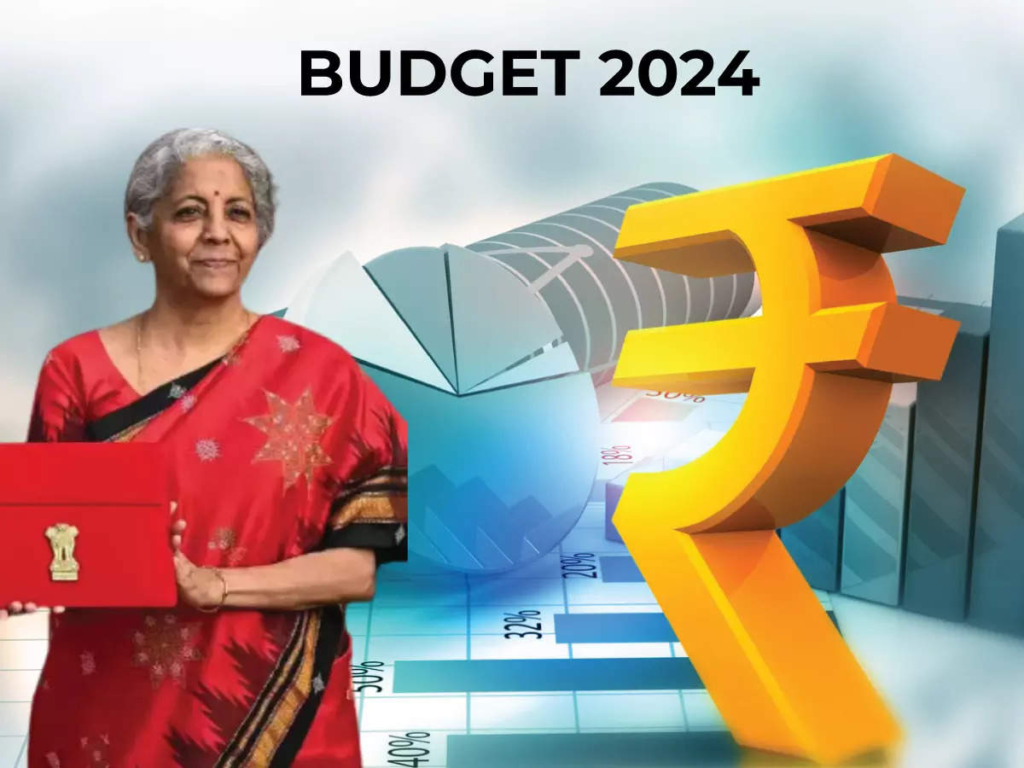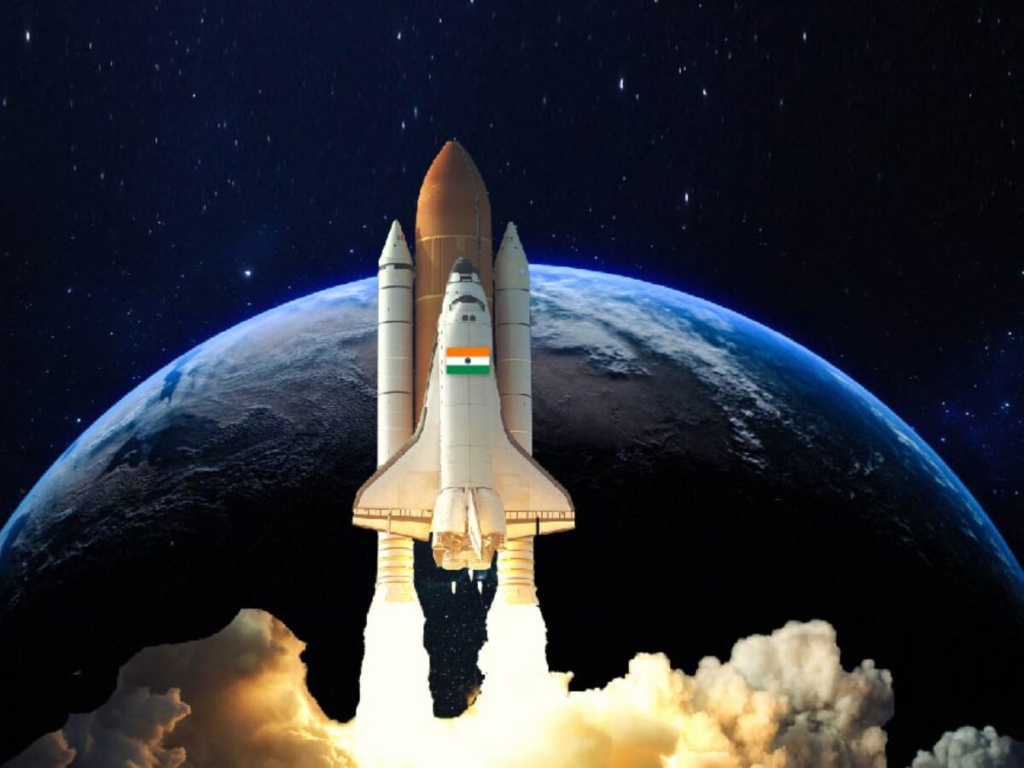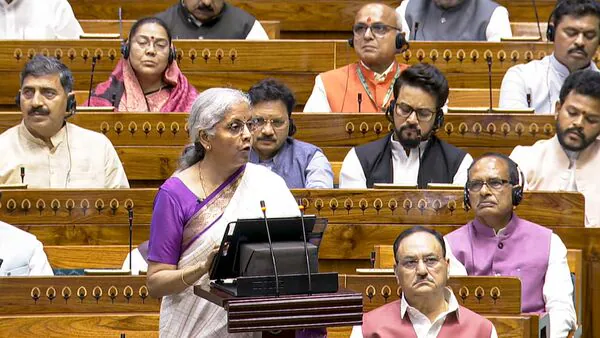The Indian Union Budget 2024, presented by Finance Minister Nirmala Sitharaman, has made significant waves with its allocation of ₹1,000 crore towards the advancement of space technology. This allocation marks a pivotal moment for India’s space program, reflecting the government’s commitment to enhancing the country’s capabilities in space exploration and technology. This essay explores the implications of this budgetary allocation, its impact on India’s space industry, and the broader significance of investing in space technology for national development.

Context of the Budget 2024 Allocation
Historical Perspective on Indian Space Research
India’s space journey began with the establishment of the Indian National Committee for Space Research (INCOSPAR) in 1962, which later evolved into the Indian Space Research Organisation (ISRO). Over the decades, India has achieved remarkable milestones in space technology, including the launch of satellites, interplanetary missions, and the development of indigenous space technology.
- Early Achievements: India’s first satellite, Aryabhata, was launched in 1975, marking the beginning of India’s space exploration. The launch of the Mars Orbiter Mission (Mangalyaan) in 2013 showcased India’s capability in interplanetary missions.
- Recent Developments: In recent years, India has continued to make strides with missions such as Chandrayaan-2 and the Gaganyaan human spaceflight program, emphasizing its growing expertise and ambitions in space.
The Budget’s Role in Space Exploration
The allocation of ₹1,000 crore in the 2024 budget underscores the government’s recognition of the strategic importance of space technology. This funding is aimed at fostering innovation, expanding research capabilities, and supporting missions that have the potential to propel India to the forefront of space exploration.
Breakdown of the ₹1,000 Crore Allocation

1. Research and Development
A significant portion of the allocated funds will be directed towards research and development (R&D) initiatives in space technology. This includes:
- Satellite Technology: Investment in developing advanced satellites with enhanced capabilities, such as high-resolution imaging, communication, and Earth observation.
- Spacecraft and Launch Vehicles: Funding for the development of next-generation spacecraft and launch vehicles, aiming to improve efficiency and reliability.
- Deep Space Exploration: Support for missions targeting deeper space exploration, including advanced propulsion systems and technologies for long-duration space travel.
2. Infrastructure Development
Enhancing infrastructure is crucial for the advancement of space technology. The budget allocation will support:
- Spaceports: Development and expansion of spaceports to accommodate increased launch activities and ensure operational efficiency.
- Ground Stations: Upgrading ground stations to improve tracking, communication, and data processing capabilities.
- Research Facilities: Establishment of new research facilities and laboratories to support cutting-edge research and innovation in space technology.
3. Human Spaceflight and Astronaut Training
Human spaceflight programs are a critical component of India’s space ambitions. The budget will contribute to:
- Gaganyaan Mission: Continued support for the Gaganyaan mission, India’s first manned space mission, including training for astronauts and development of life-support systems.
- Training Programs: Expansion of training programs for astronauts and space scientists to build a skilled workforce capable of handling advanced space missions.
4. International Collaboration
Space exploration is often a collaborative effort involving multiple countries and organizations. The budget allocation will facilitate:
- Partnerships and Agreements: Strengthening partnerships with international space agencies and organizations to enhance collaborative research and missions.
- Joint Missions: Participation in joint missions and projects, leveraging global expertise and resources for mutual benefit.
Impact on India’s Space Industry
1. Economic Growth and Job Creation
Investment in space technology has far-reaching economic implications:
- Industry Growth: The allocation will stimulate growth in the space industry, attracting private sector investment and fostering the development of space-related businesses.
- Employment Opportunities: Creation of job opportunities in research, manufacturing, and operations within the space sector, contributing to overall economic development.
2. Technological Advancements
Advancements in space technology have a ripple effect on other sectors:
- Innovation: Increased funding for R&D will drive technological innovation, potentially leading to breakthroughs with applications beyond space exploration.
- Spin-offs: Technologies developed for space missions often find applications in areas such as telecommunications, healthcare, and environmental monitoring.
3. National Security and Strategic Advantage
Space technology plays a crucial role in national security:
- Surveillance and Reconnaissance: Enhanced satellite capabilities will improve surveillance and reconnaissance, contributing to national security and defense.
- Strategic Capabilities: Investment in space technology strengthens India’s strategic capabilities and enhances its position in the global space arena.
Broader Significance of Investing in Space Technology

1. Scientific Research and Discovery
Investment in space technology supports scientific research and discovery:
- Understanding the Universe: Space missions provide valuable insights into the universe, including the origins of celestial bodies, cosmic phenomena, and the potential for life beyond Earth.
- Earth Observation: Satellites play a vital role in monitoring Earth’s climate, natural disasters, and environmental changes, supporting scientific research and policy-making.
2. Educational and Inspirational Impact
Space exploration has a profound impact on education and public inspiration:
- STEM Education: Investments in space technology inspire students to pursue careers in science, technology, engineering, and mathematics (STEM), fostering a future generation of innovators.
- Public Engagement: High-profile space missions and discoveries capture public imagination, generating interest in science and technology.
3. Global Positioning and Diplomacy
Active participation in space exploration enhances global positioning:
- International Standing: Advancements in space technology elevate India’s standing as a leading space-faring nation, strengthening its influence in international space forums.
- Diplomatic Relations: Collaboration with other countries in space missions fosters diplomatic relations and promotes peaceful uses of outer space.
Future Directions and Challenges
1. Sustaining Investment and Innovation
Ongoing support for space technology requires sustained investment:
- Long-Term Planning: Developing a long-term vision and strategic plan for space exploration to ensure continuous progress and achievement of milestones.
- Public-Private Partnerships: Encouraging public-private partnerships to leverage additional funding and expertise for space missions.
2. Addressing Technical and Logistical Challenges
The space industry faces various challenges that need to be addressed:
- Technical Complexities: Overcoming technical complexities associated with spacecraft, launch vehicles, and deep space missions.
- Cost Management: Managing the high costs associated with space technology and ensuring efficient use of allocated funds.
3. Promoting Inclusivity and Diversity
Promoting inclusivity and diversity within the space sector is crucial:
- Diverse Workforce: Encouraging diversity in the workforce to bring different perspectives and ideas to space research and development.
- Global Collaboration: Emphasizing global collaboration and partnerships to foster a more inclusive and cooperative space exploration environment.

Conclusion
The allocation of ₹1,000 crore for space technology in the 2024 budget represents a significant commitment to advancing India’s space capabilities. By investing in research and development, infrastructure, human spaceflight, and international collaboration, the government is setting the stage for India to continue its journey as a major player in space exploration. This investment not only supports technological advancements and economic growth but also enhances national security, inspires future generations, and strengthens India’s global position. As India moves forward with its space ambitions, the successful execution of these plans will undoubtedly contribute to the country’s scientific, economic, and strategic development in the years to come.
For more such content, keep visiting QAWire
